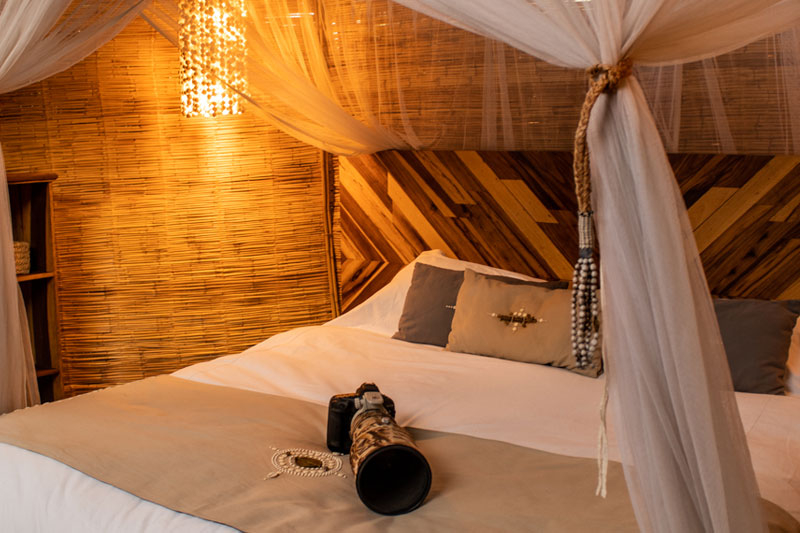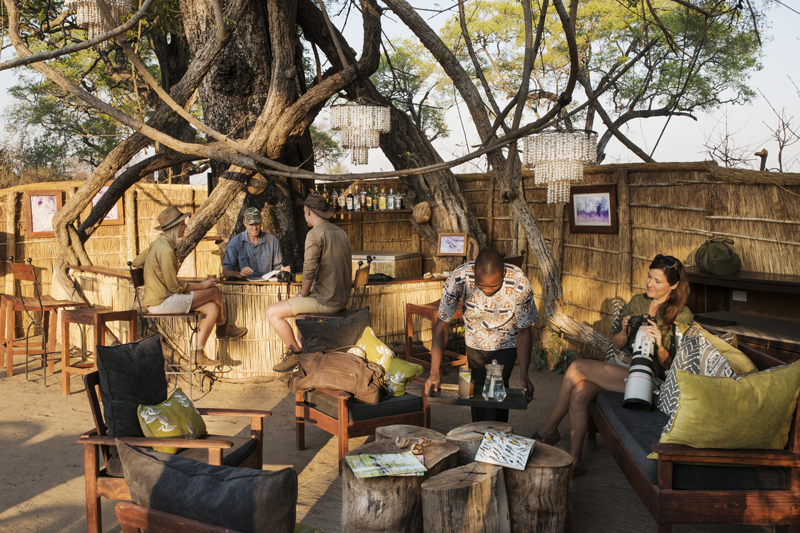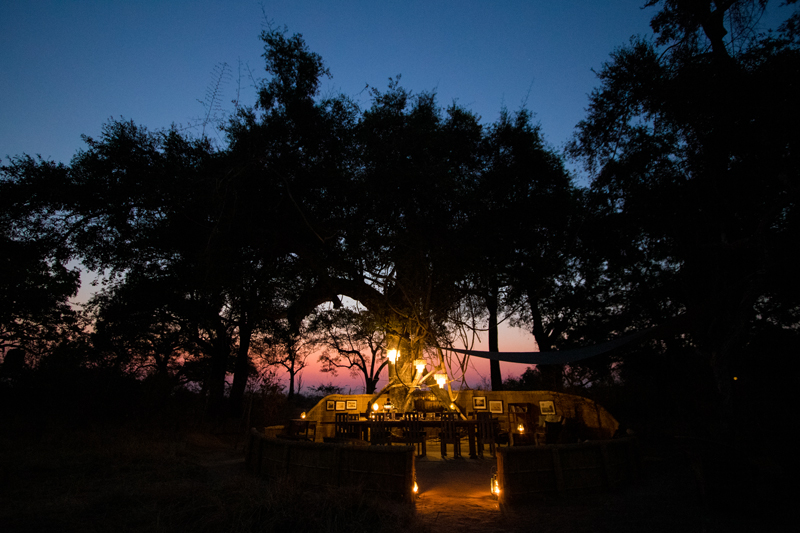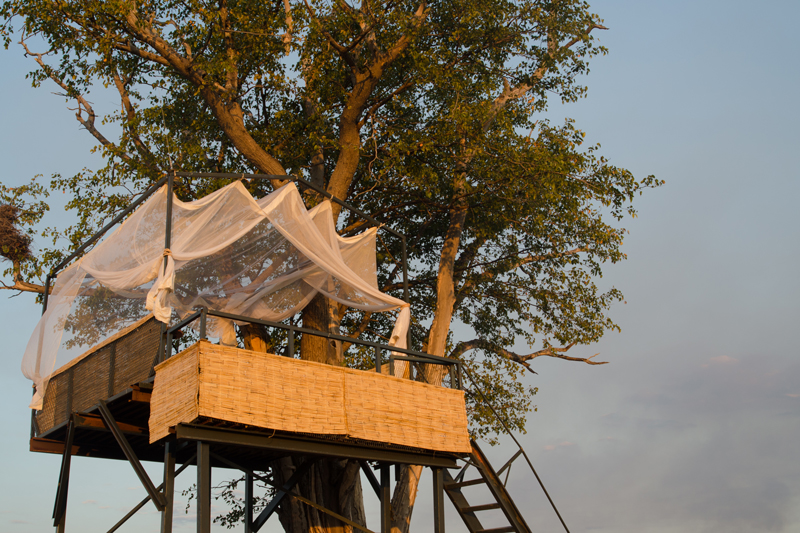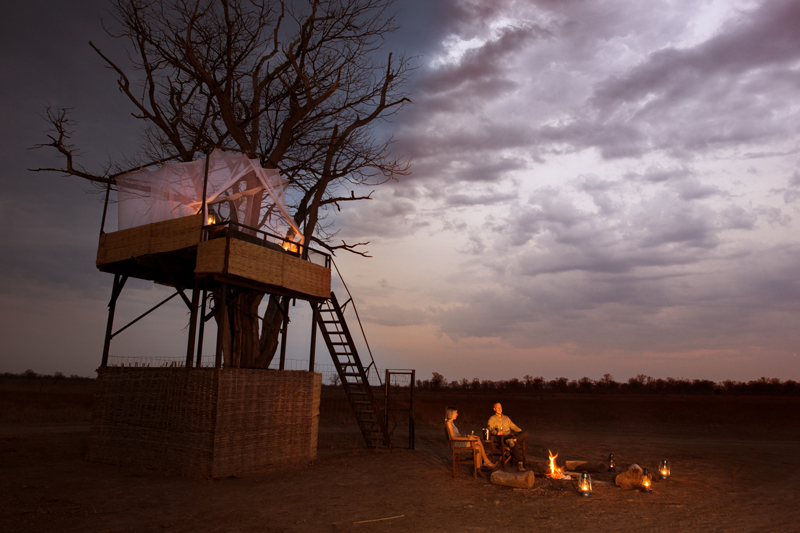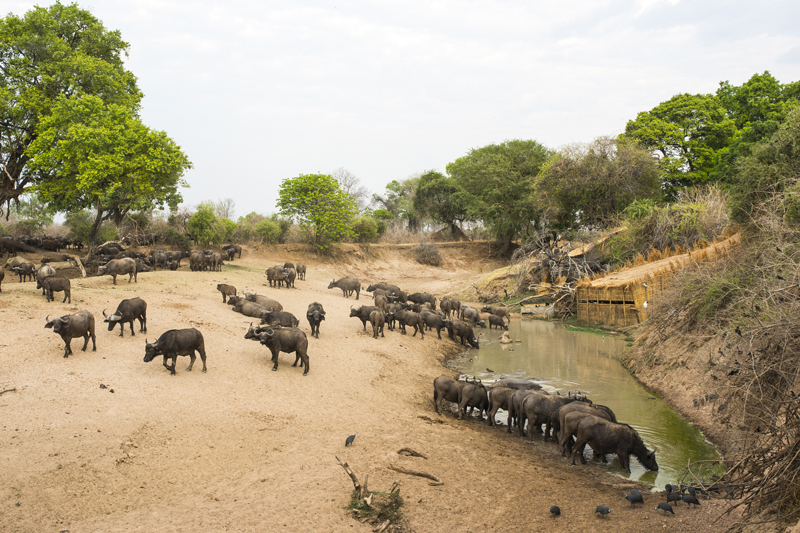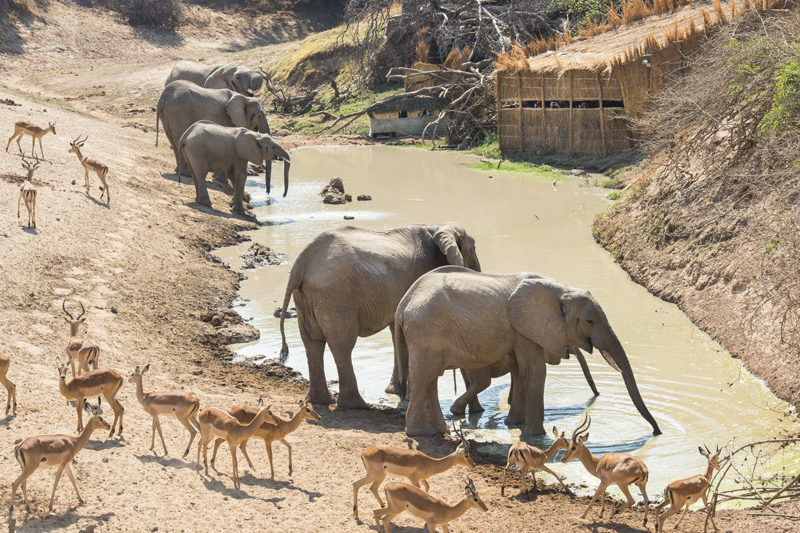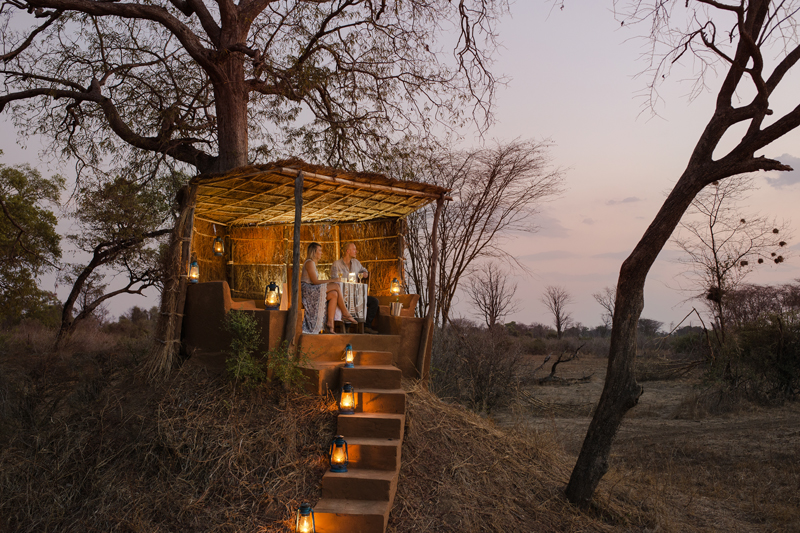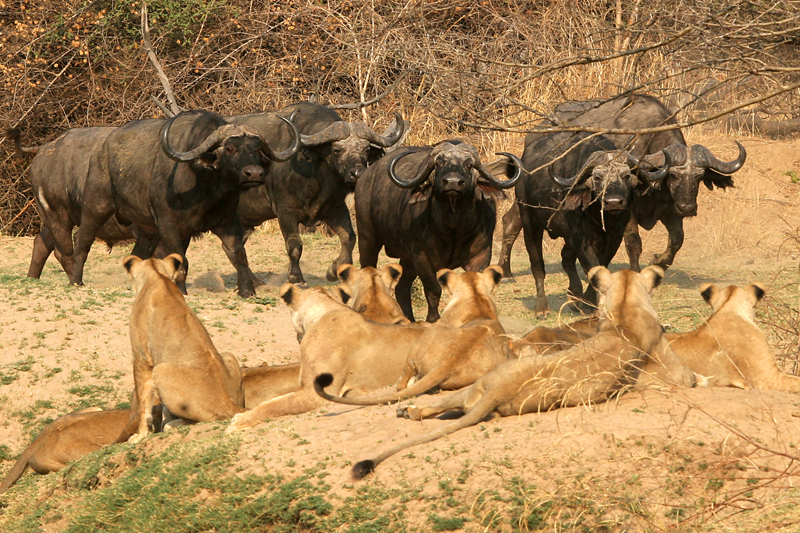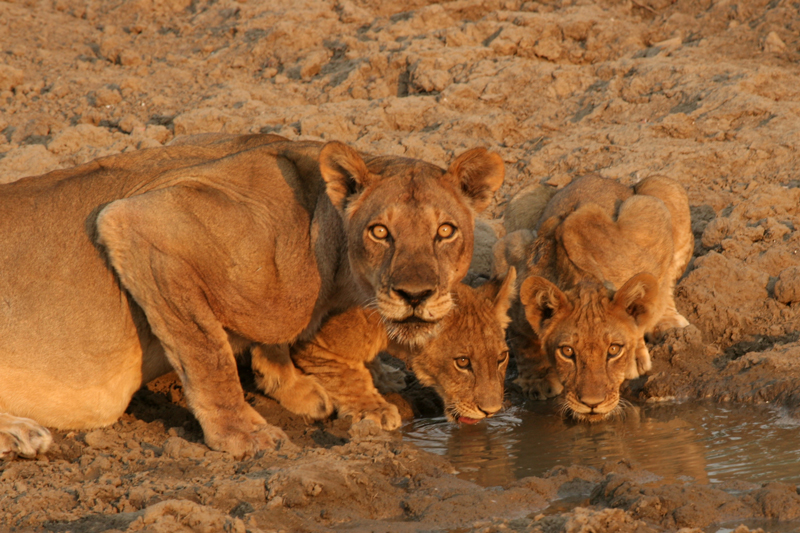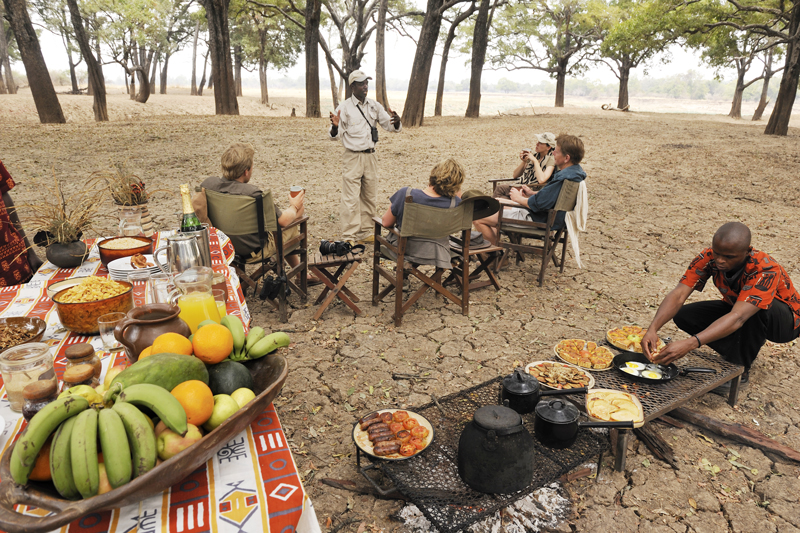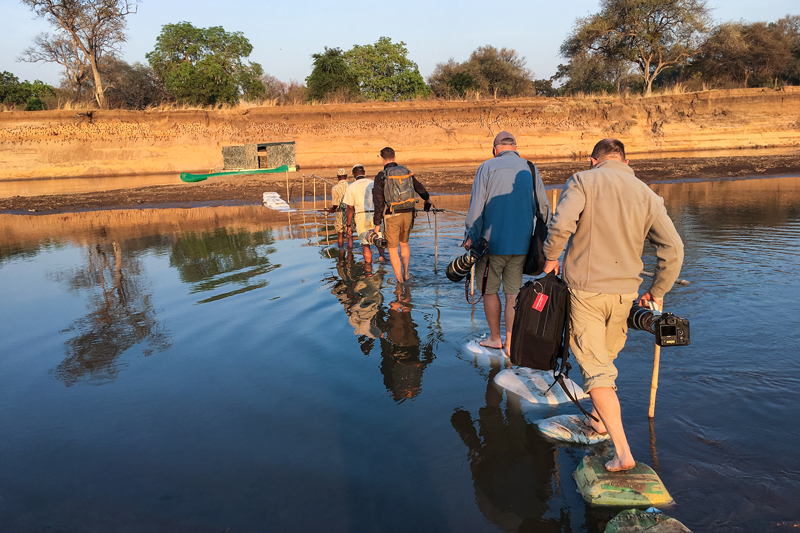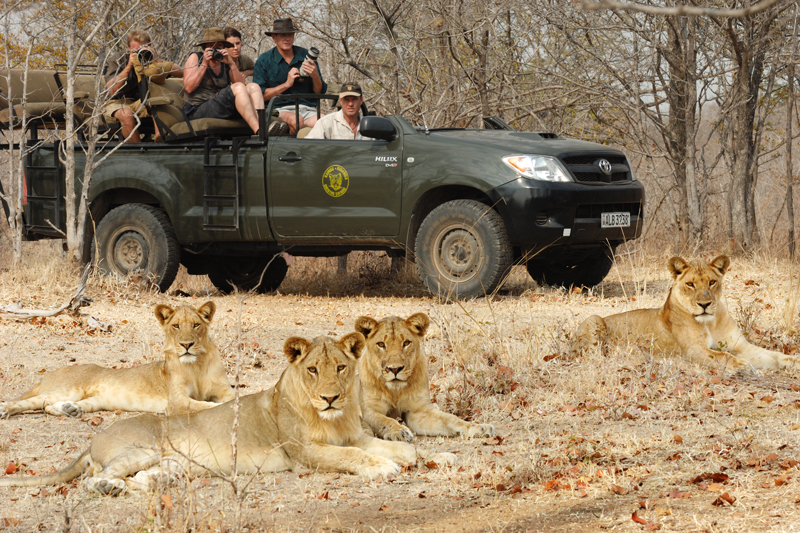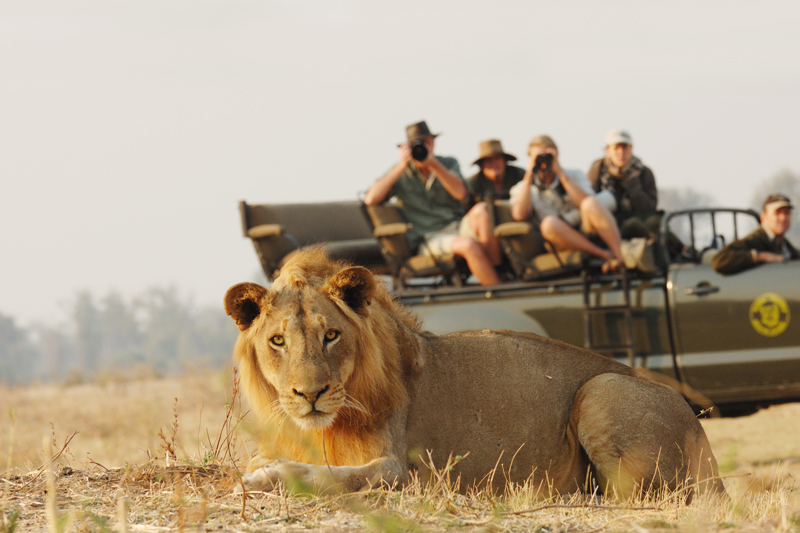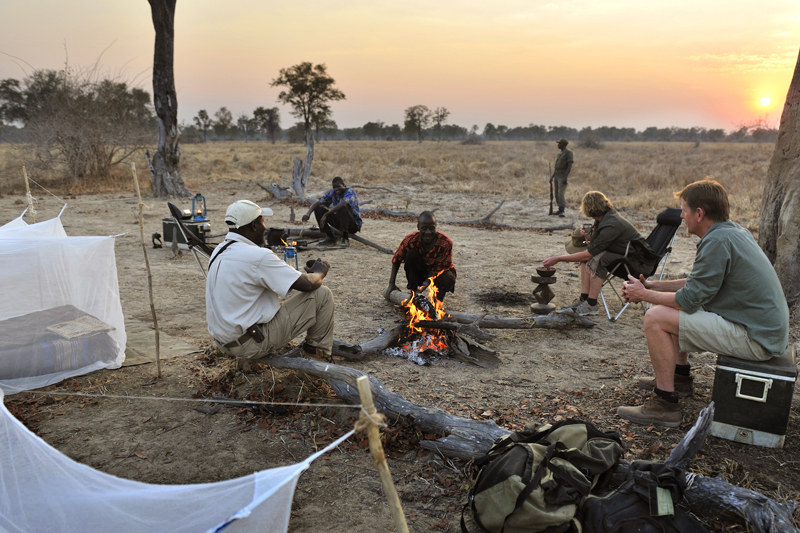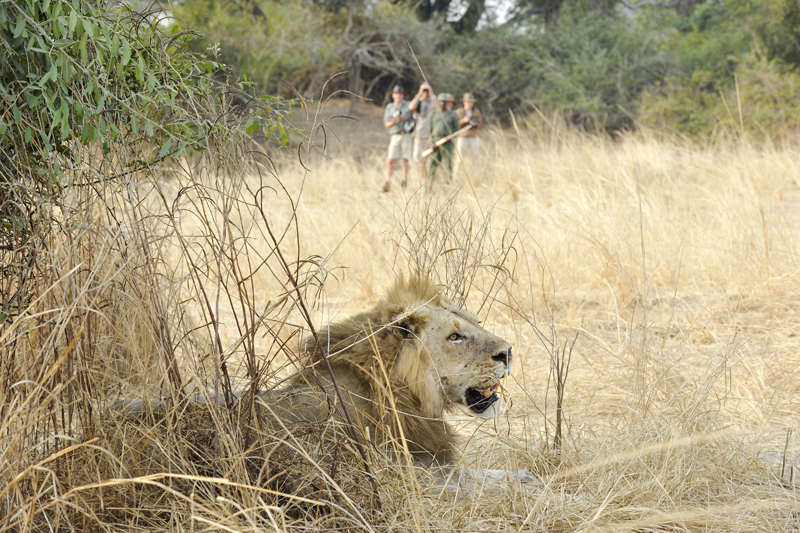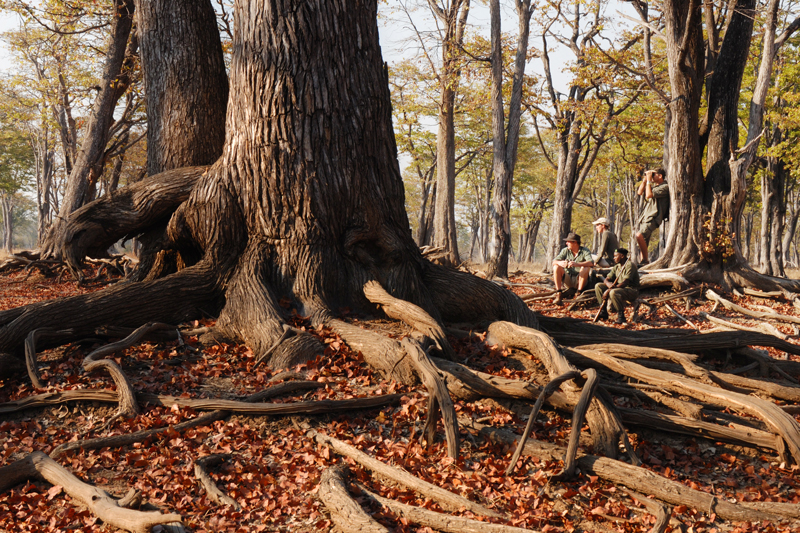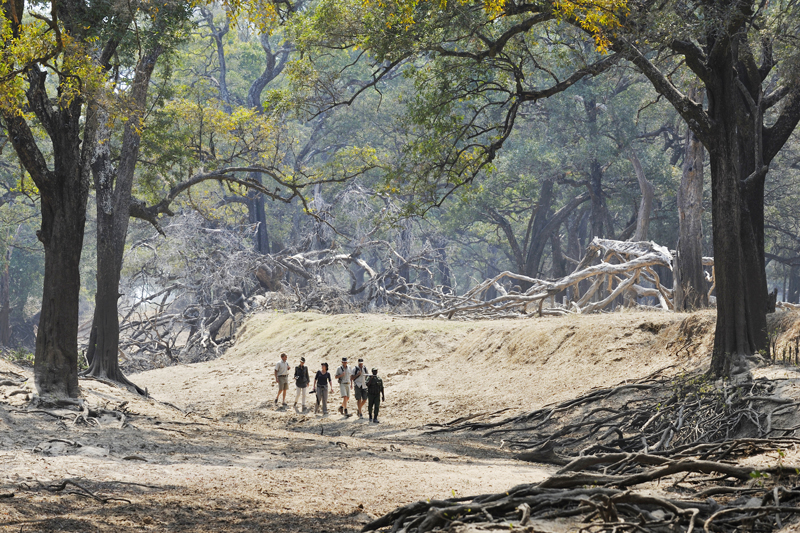Mwamba Bushcamp
Mwamba Bushcamp is a small, traditional bush camp overlooking the Mwamba River channel in the heart of the South Luangwa National Park.
Mwamba offers a true bush experience in a very productive game viewing area. Originally a walking camp, Mwamba offers access to some core game viewing regions as well as some very remote areas that are seldom visited by other tourists. These days most guests seem to want to drive more than walk, but it is still a super camp for walking and there is always a walking guide on hand. The camp is very much a seasonal bush camp, with the chalets re-built each year from grass and thatch, and despite being very comfortable, the accommodation maintains an adventurous feel with small bedrooms, sky windows and open bathrooms that are sometimes visited by elephants seeking out fresh water! Food is good quality and wholesome, guests are very well looked after and the guiding is excellent. The ‘last waterhole’ hide on the edge of camp is brilliant in the late dry season (September/ October) for sightings and photography. Mwamba is a camp for wildlife enthusiasts, photographers, walkers and those looking for a quiet and escapist ‘close to nature’ bush experience.
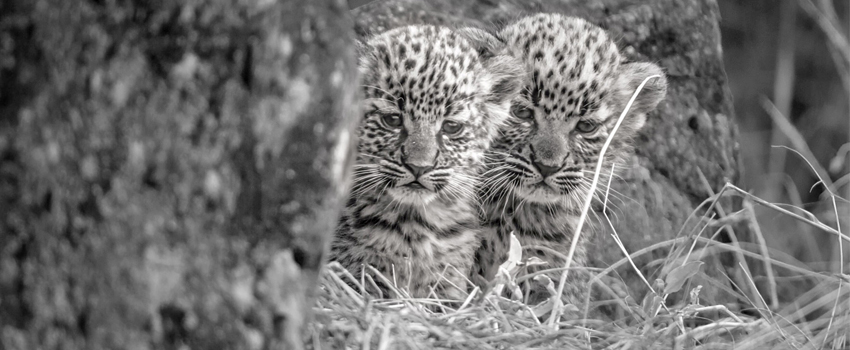
ACCOMMODATION
Mwamba caters for a maximum of eight guests in four comfortable but rustic grass and reed chalets. The ‘cosy’ chalets are built overlooking the Mwamba River Channel, which flows into the Luangwa. Each chalet has two ‘skylights’ in…
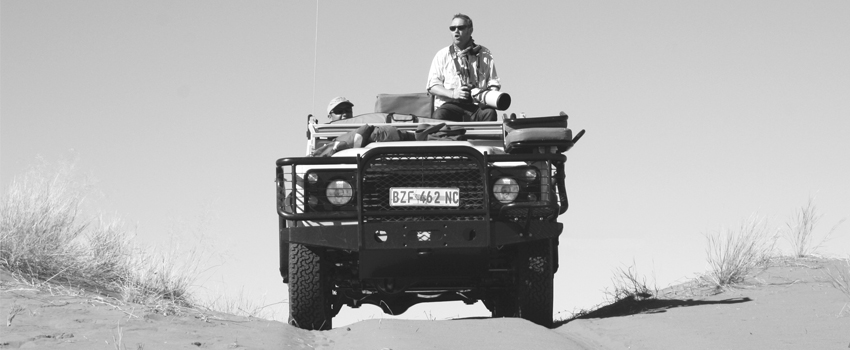
AREAS & ACTIVITIES
The Luangwa Valley is one of Africa’s most scenic and game-rich National Parks. Forming part of the southern end of the Great Rift Valley, the wide valley floor is about 1,000ft lower than the surrounding plateau and through the centre…
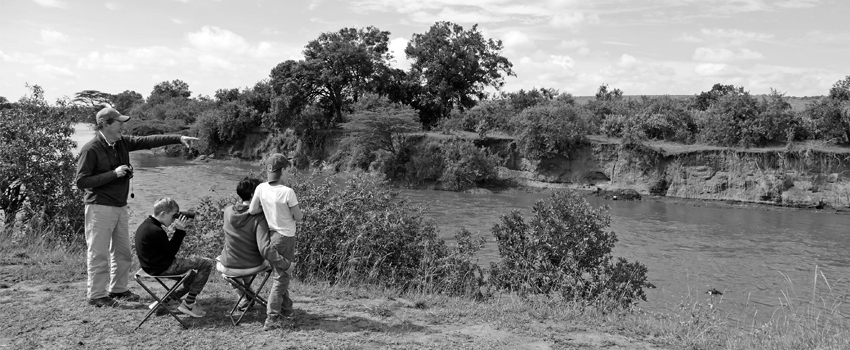
Families
Mwamba caters for children 12 years and older, and is most suitable for active and adventurous families with older children who can take their own room and are keen to explore.
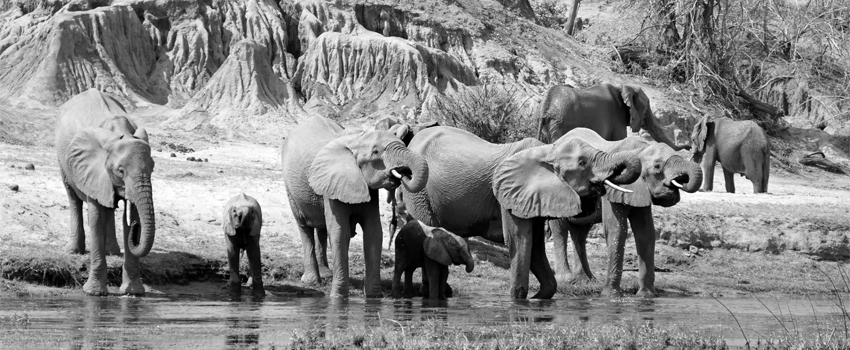
Conservation & community
Derek Shenton, owner of Mwamba, is on the board of Conservation South Luangwa whose mission statement is: ‘To work with community and conservation partners in the protection of the wildlife and habitats of the South Luangwa…
| Location | South Luangwa National Park |
| Access | Scheduled or Charter flight into Mfuwe (2.5 hour drive) |
| Open | June to October |
| Pricing | £££££ |
| Camp Style | Bush camp |
| Focus | Big game / Birding / Walking / Photographic hide |
| Children | 12 years + |
| Activities | Game drives (day and night) / Guided walks / Hide |
| Vehicles | Open |
| Maximum Guests on Vehicle | 4 |
| Private Vehicle Options | Yes |
| Off-road Driving | Yes (for certain sightings) |
| Number of Rooms | 4 reed and thatched chalets |
| Family Accommodation | No |
| Bathroom | Outdoor / Flush toilet / Plumbed basin / Bucket shower |
| Power for charging | In room |
| Lighting | Solar |
| Hairdryer | Not possible |
| Heating/Cooling | Standing fan |
| Room Safe | Yes |
| Laundry Service | Complimentary |
| Communication in room | No |
| Wi-Fi | No |
| Mobile Reception | No |
| Swimming | No |
| Wellness | No |
| Dining Style | Communal |
| Drinks Included | All |
| Credit Cards | Not accepted |


